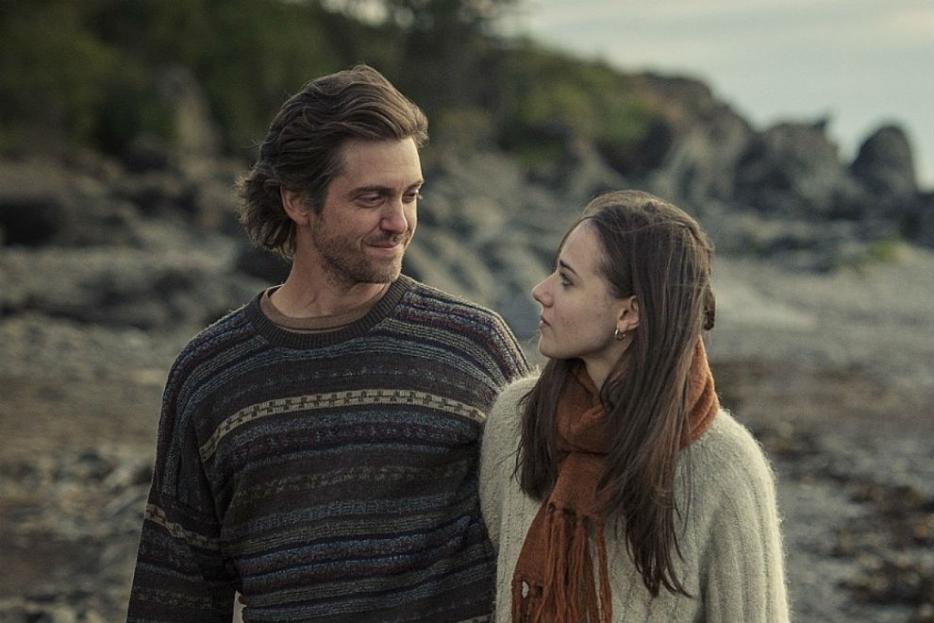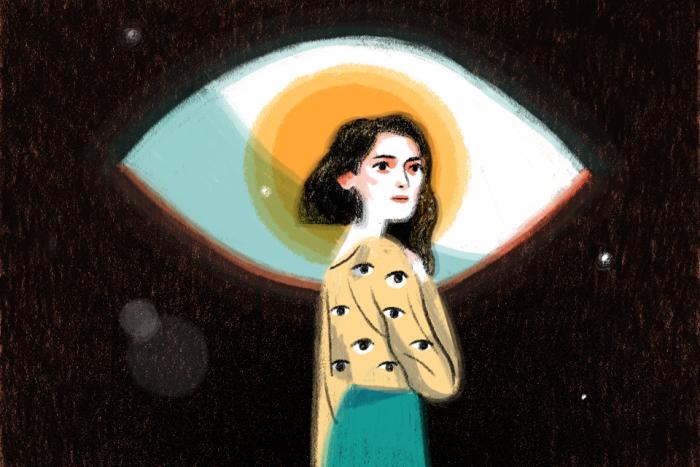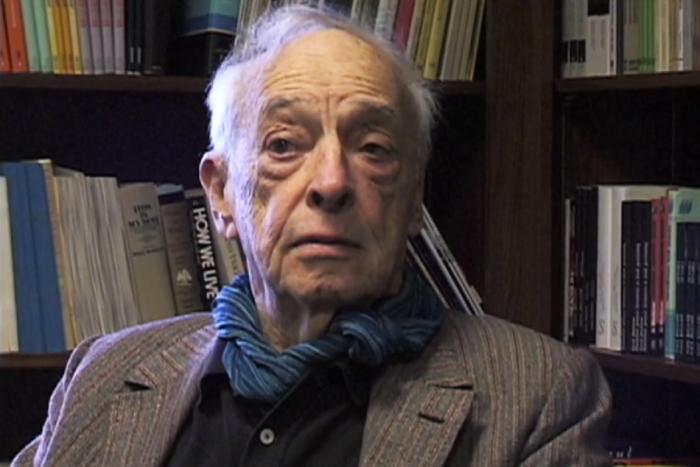Recently, The Globe and Mail published a piece by Barry Hertz inventorying the frustrations of acclaimed French-Canadian filmmakers whose work is only rarely seen outside of Quebec. That this marginalization is hardly a new story doesn’t make it any less of a problem. The paradox is that the very same regional and cultural references that make these movies vital to their immediate Francophone constituency limit their appeal beyond provincial borders. "No matter how great these movies are,” wrote Hertz, “they may never matter to the rest of English-Canada.”
Of course, the only way to keep this lament from becoming a self-fulfilling prophecy is to point up the quality of the movies themselves, as often as possible. One of Hertz’s subjects, Anne Émond, is a 33-year old writer director who stands as one of the most promising talents to emerge from la belle province in years. After winning attention with a series of richly naturalistic short films, she unleashed a spiky debut feature called Nuit #1 (2011), which surveyed the chatty aftermath of a rave-club hook-up. Its lean, agile portrait of kids clinging to each other against a lonely metropolitan backdrop suggested a vigorous new voice, but the film was overshadowed by the even younger Quebecois auteur Xavier Dolan’s flashier, fatter-bottomed melodramas.
Her follow up, Les êtres chers, which recently won the Toronto Film Critics Association’s annual Jay Scott Prize, and was nominated last week for seven Canadian Screen Awards, including Best Film and Best Director, feels like a breakthrough. It’s a sprawling yet controlled account of a family living in the St Lawrence Valley in the shadow of chronic depression. David (the wonderful Maxim Gaudette) is a fit, attractive, sensitive young man who feels crippled from within by the legacy of his father’s suicide; rather than expressing his grief, he internalizes it, with dangerous consequences. As David’s grip on happiness slips away over the course of twenty years (in scenes set in the 1970s, '80s and '90s), Émond shifts her gaze to his daughter Laurence (Kate Tremblay), who is trying to cope with several generations’ worth of inherited melancholia.
This is difficult subject matter, and Émond meets it head-on while allowing room for poetry and metaphor. Her screenplay has the rounded, absorbing quality of a good novel; With its bright, luminous cinematography and smartly chosen pop soundtrack, Les êtres chers should be accessible to viewers on either side of the linguistic divide; its emotional appeal is broad, while its subtleties potentially transcend subtitles. When I spoke with Émond, she said that she wasn’t sure if her film was going to get wider distribution from eOne after concluding its theatrical run in Quebec. But even if it doesn’t, it should still matter to the rest of Canada that films this good are being produced (if not released) right under their noses.
You were interviewed recently for an article in The Globe and Mail about the commercial struggles of French-Canadian cinema outside of Quebec. Beyond the fact that it’s always better to make more money from exhibiting your work, does it bother you that English Canada is so indifferent to films that come out of Quebec?
It matters very much. I wish our films travelled more in the rest of Canada. When I was in Locarno, I had people tell me there that they felt the family in the movie was their family, and in Mexico as well. I think this movie can travel, because it’s honest. But [in Canada] there’s nothing I can do. I wish I could do more.
Do you think that other directors in Quebec share your frustration? Is it something that’s talked about within the community?
There’s a general feeling of frustration about this, about not being seen so widely. And that’s also true about being seen in Quebec. Maybe in Toronto, filmmakers have the same feelings? A lot of films play for one or two weeks in Quebec, and that’s it.
Is there a pronounced division in Quebec between art-house and commercial filmmakers? Is there a split based on the budgets that people work with? Does it have to do with different genres and styles? Is it more generational?
Of course there is a division. My first film, Nuit #1 was sort of edgy, and brash and young. The new film is more of a popular film, or a commercial film. I’m not ashamed of that. I love that. Sometimes I feel like I’m between those two circles. I’m not quite one of the young, cool people anymore, but I’m also not quite a commercial filmmaker, I don’t think.
I thought that the biggest difference between Les êtres chers and Nuit #1 was that this time, the characters don’t want to talk about their feelings. It’s the contrast between these self-conscious millenials living in Montreal and a family from the Saint Lawrence Valley, living off the grid a little bit…
A lot of people have said how different these movies are. To me, they’re not that different. They have a lot of things in common. They’re both about people who are not happy, who cannot be happy, who are trying to be happy, somehow. It’s true that in Nuit #1, the characters talk a lot—maybe too much. They can’t stop talking, and some people might say, “shut up already and do something!” That’s what they said to me, anyway. In Les êtres chers, it’s the opposite—David has this pain, and he can’t articulate it. He needs to protect himself, or to try and protect his family from that pain. It’s a generational thing, maybe, or it’s about age.
I thought it was very daring to make a film where the main character disappears and is effectively replaced with a second protagonist. It’s unusual.
It was a hard thing. We had problems with that at the writing stage, and when it came to funding. A lot of the questions we got were about the fact that the main character dies and the movie keeps going, for half an hour, without him. I don’t know if you’ve seen the film The Father of My Children, by Mia Hansen-Løve, but it’s a bit similar to that.
Her movies are all about people disappearing; I’ve interviewed her and told her that I think she keeps making the same movie, with small little changes each time.
Yes, in a good way! I met her at a few different festivals but I was a little shy. That kind of changeover in her films works so well, anyway. That’s what I wanted. When David dies in my film, you miss him. You feel this emptiness. But I was afraid when we were editing, because we loved his character, and we were worried about what would happen [to the movie] when he was gone. It was a great discovery for us that [Kate Tremblay] is capable, that she’s a good actress, and that she could take the movie with her. I shouldn’t read reviews and comments on the Internet, but I do—everyone says “don’t go there”—and a lot of the comments are about that. They say the movie loses something without him. I don’t agree, though. The last half hour is important. It’s what the movie is about. How do you go on when somebody you love is gone?
Was the idea always to do a movie based around the topic of suicide?
It started with suicide. That was always the idea. I knew I wanted to be more generous and more open than my first film. I didn’t want to make something that was obscure, or for cinephiles.
Is that what you think of Nuit #1?
A little bit. Well, no, but it was what happened with that movie. I’m working on my third movie now, and I’m slowly realizing that what I think is commercial or appealing is not really those things.
Based on your short films, I’d say that your major interest is in young people. You keep telling stories about people on the verge of adulthood, and the challenges that come with that transition.
I do love young people. I think you can feel that in the movie. It was easy for me to direct scenes where they’re high and lying around and listening to music. That’s fun for me. I’m getting older, and so I’m more interested in that time of life.
In that scene you’re mentioning, Laurence and her friend are listening to “No Rain, “ by Blind Melon, which is an interesting choice since Shannon Hoon died young. I’m interested in the contrast between the American pop songs on the soundtrack and the traditional ballad that David says he wrote for his wife when they were getting married.
He didn’t write the song: he claims to, to impress her. Nobody will know that unless they live in Quebec. It’s a well-known song here. That part of the movie is very important.
The lyrics are so devastating: the singer plants a tree, and in time it outgrows him. I was very moved by the sentiment even though the song is also really very cheesy.
I can understand you saying it’s cheesy, but it’s not! It’s from the Seventies, and it’s beautifully written by a great writer! I love it. In the film, it’s played three times, and the first time, when David is young, and has long hair, and is in love and having a baby, it connects with all those things in his life. And the last time we hear it, he’s older and more sad and tired, and the same words mean something very different, coming at the end of a life.
You also use “Common People” by Pulp, which is such a rousing song—it really changes the tempo of the movie.
When I was out running, the song came on my playlist and I had the idea for a scene. Laurence comes home to see her friend, Antoine, who is sick, and suddenly she’s strong enough to be there for him and to take care of him. And they choose to dance and to be alive.
It’s interesting you mention Antoine, because he’s a mirror of David in some ways: he is a young man in this part of the country struggling with his mental health. I wonder if Les êtres chers is in some ways a movie about the dark side of an idyllic, pastoral existence—it suggests that this is not a totally safe space in some ways.
David has a beautiful house. He has a family. He has security—a security perimeter. On these grounds, in this place, he’s ok. He has the river. He has the woods, where he can go out and shoot, and hunt. It’s safe there. But it’s not enough. You have to go see the world, though. That’s what his daughter is able to do, when she goes to Montreal and then to Barcelona. It’s not sane to just stay in a little paradise.
It’s where you grew up, right?
I grew up in the country. I grew up almost in the exact same area as in the movie.
So you know it well?
I know it well. Antoine is somebody I knew, or I would say that this kind of story happened all the time there. We had nothing to do. We would do drugs, strong, cheap drugs. It doesn’t help to do that if you’re already a little bit sick… there’s a kind of despair in this sort of place. I was 17 then, and I’m 33 now, so it’s like a halfway point since then, and I’m thinking of going back. Maybe later. I miss it now. When I was 17, I needed to get out. You couldn’t share your pain. That’s what happens to David.
David makes puppets for a living, which seemed like a crucial choice. Why did you choose this motif of marionettes?
I was thinking I wanted David to be an artist, but not a complete artist. More of an artisan. He’s doing something beautiful, but it’s always the same. He can paint these puppets’ faces, and he can do anything he wants, but he doesn’t always know how to make them look. I thought that this was very rich.
He’s a guy who feels like somebody else is pulling his strings, maybe. Have you shown the film in rural Quebec? What was the reaction?
We showed the movie in different little towns, and people were proud to see their region on the screen. I don’t know the statistics on suicide. I think it’s higher in Quebec than the rest of Canada, and higher still outside Montreal. When people saw the movie, they saw that I was filled with love. There’s no condescension. They told me that the people reminded them of their family. I think that they understand that this is where I’m from.
You’ve made a couple of comments in interviews that the film has an autobiographical dimension…
I put a lot of myself into this movie. I didn’t tell a lot of people about it. I haven’t shared that with journalists, because the film was just going out and I didn’t want [to talk about it]. It’s very personal. It’s very autobiographical. And I’m happy when people come to me to talk. A woman told me about her son, and that something happened to him that was similar to what we see in the film, and that she was relieved to watch something that didn’t have judgment in it. It doesn’t ask about the reasons. When somebody commits suicide, everyone’s first question is always “why?” Was he sick? Was he depressed? Most of the time, there is no way to know the reason. Or, if you knew the reason, the person wouldn’t be dead, because you would have said something, or done something. I’m not a psychologist, and I’m not making movies for social reasons, but with this sort of film, you have to accept that it has this subject, and if people want to talk to me about this subject and how it’s affected them, it makes me happy.
It’s funny that you said you aren’t sure what makes a movie appealing or commercial. I think you’re right: you made a movie about depression and suicide, which aren’t really commercial subjects.
I’m slowly beginning to understand that a lot of the time people go to the movies to forget their own lives.
Sure, but escapism isn’t always the goal of a moviegoer. People go to mediocre movies to escape; the ones that they really love are the ones where they recognize themselves in some way. Nobody says “I loved that movie because I can’t relate to it at all.”
Maybe they say that about Star Wars.
Star Wars is all about family trauma. It’s sort of a Dad movie, like yours.
I should see it.






